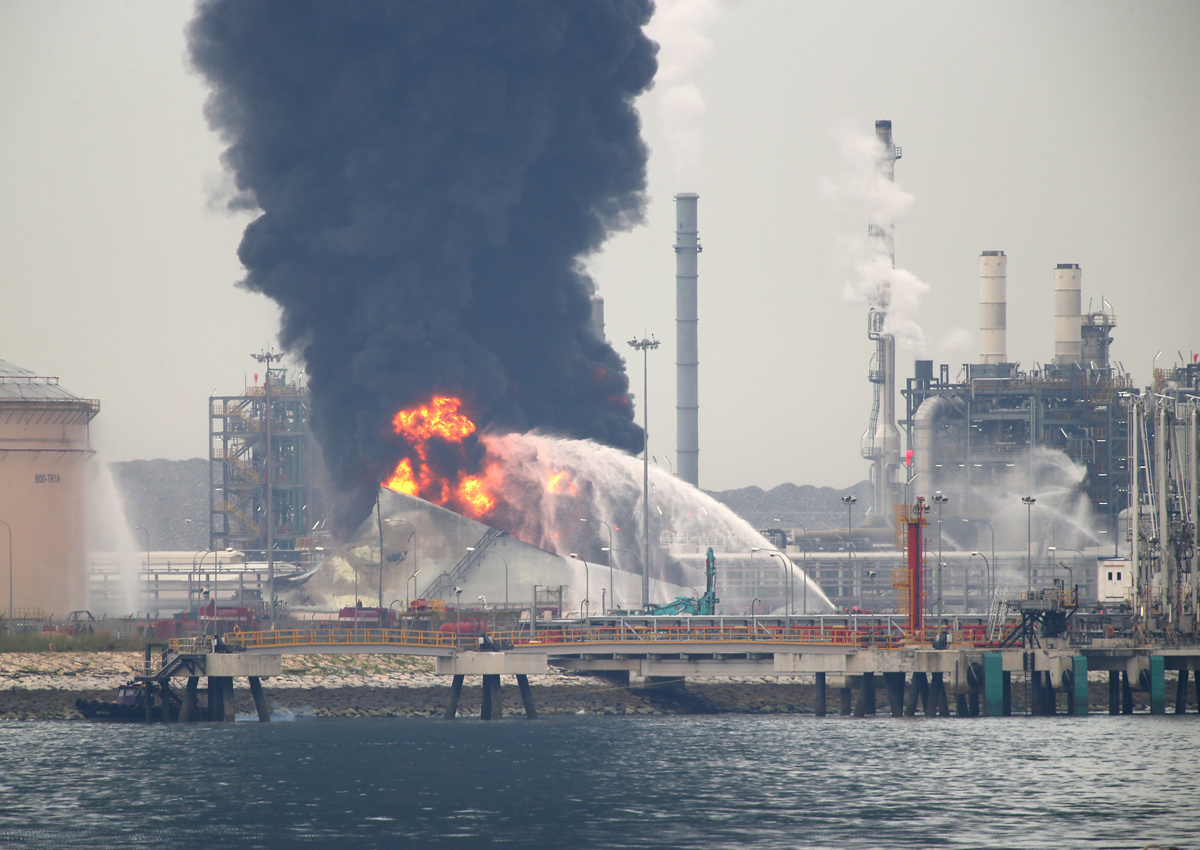It is one setback after another for beleaguered petrochemical producer Jurong Aromatics Corporation (JAC).
Just as the firm’s receivers were completing talks on a tolling agreement, a fire that razed one of its storage tanks last week also destroyed all hope of the plant on Jurong Island restarting any time soon.
JAC, whose US$2.4 billion (S$3.2 billion) plant had been idle for the whole of 2015, went into receivership in September last year. The Business Times reported in December that four to five proposals had been made to the firm’s receivers Borrelli Walsh.
Market analysts told BT that Borrelli Walsh had started talks with BP on a one-year tolling arrangement, and was hoping to start up the plant in April or May.
Under the arrangement, BP would provide feedstock to JAC and take up all of its output, thus freeing JAC from market risks. JAC, in return, would receive a fixed processing fee.
JAC can produce 2.5 million tonnes of transportation fuels such as fuel oil and petrol and 1.5 million tonnes of aromatics each year. The latter includes paraxylene, better known as PX, which goes into making polyester.
Starting up in the second quarter would have allowed JAC’s products to enter the market at a time when prices for PX are usually firm, and when margins for PX producers have been good, according to analysts.
BT reported last year that 2016 would represent a window of opportunity for JAC to start up in a more profitable climate.
A source close to the talks said both the receivers and BP had been pushing for the plant to start up soon. But the fire that broke out in the plant has put paid to these efforts – for now.
One of JAC’s oil tanks caught fire last Wednesday afternoon. The intense blaze, which resulted in the tank collapsing, took about 150 firefighters five hours to extinguish.
The tank, which measures about 40m in diameter and 20m in height, contained light crude oil, or condensate, said the Singapore Civil Defence Force (SCDF). According to Borrelli Walsh, the condensate in the tank was from 2014 when the plant was first commissioned.
A SCDF spokesman said the tank, which has a capacity of 2.5 million litres, was about 10 per cent full. The value of the oil is below US$75,000, said Anu Agarwal, vice-president of chemicals at market data provider Argus Media.
All activity at the plant has now been halted while the SCDF and the Ministry of Manpower (MOM) conduct investigations into the cause of the fire, said a Borrelli Walsh spokesperson.
An MOM spokesperson said that a stop-work order has been issued to stop tank storage operations while investigations are ongoing, to ensure that control measures are in place to prevent a recurrence.
Asked how much damage the fire has caused to the company, the Borelli Walsh spokesperson replied: “That’s what we are assessing now. A lot depends on SCDF’s and MOM’s decisions as well.”
How much the fire would affect the proposed arrangement with BP is uncertain for now. “Where we proceed from here really depends on what happens to the plant,” she added. It is unclear if the talks over the tolling arrangement with BP will continue. BP declined to comment.
JAC had started operations in August 2014 – three years later than the originally planned date of 2011 due to difficulty obtaining funding during the financial crisis – just as the market for PX turned sour.
It stopped operations in December that year to “recalibrate” its production process, but subsequently ran out of working capital. Before it went into receivership, JAC’s largest shareholders were South Korean refiner SK Energy (30 per cent) and Chinese polyester maker Jiangsu Sanfangxiang Industrial Group (25 per cent).
Other significant owners include entrepreneur Vijay Goradia of Houston-based chemicals firm Vinmar Group (10.5 per cent), Swiss trader Glencore (10 per cent) and Indonesia’s Sridjaja family (9.5 per cent).
Thai KK Industry, EDB Investments and Indian multinational conglomerate Essar Group rounded up the rest of the equity interest.

This article was first published on April 27, 2016.
Get The Business Times for more stories.






